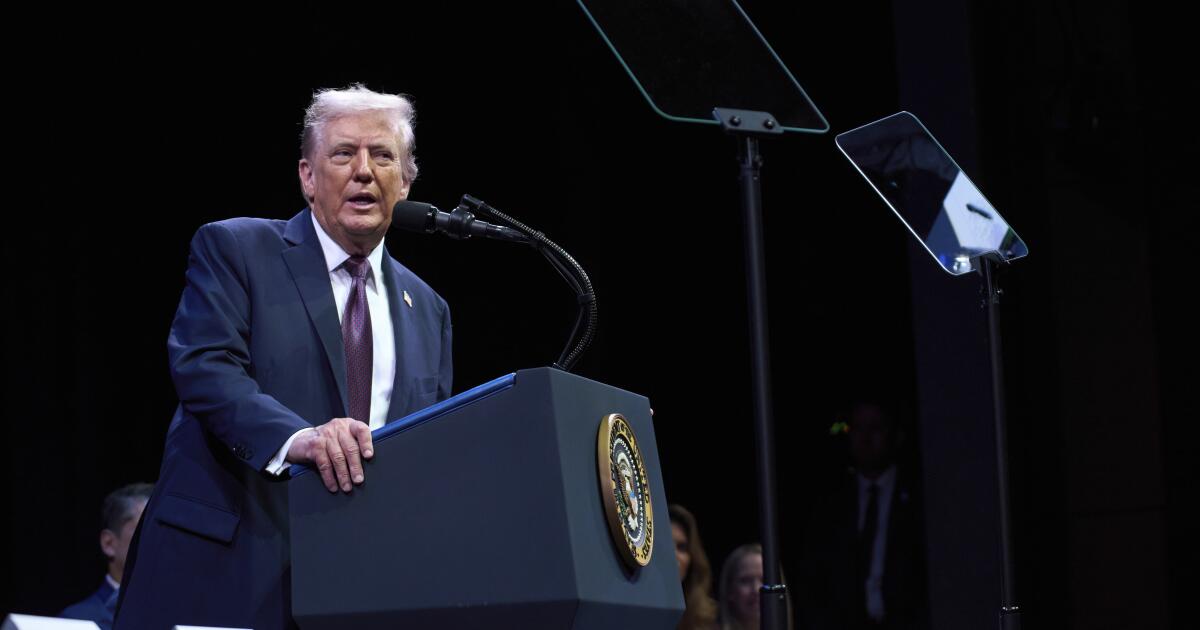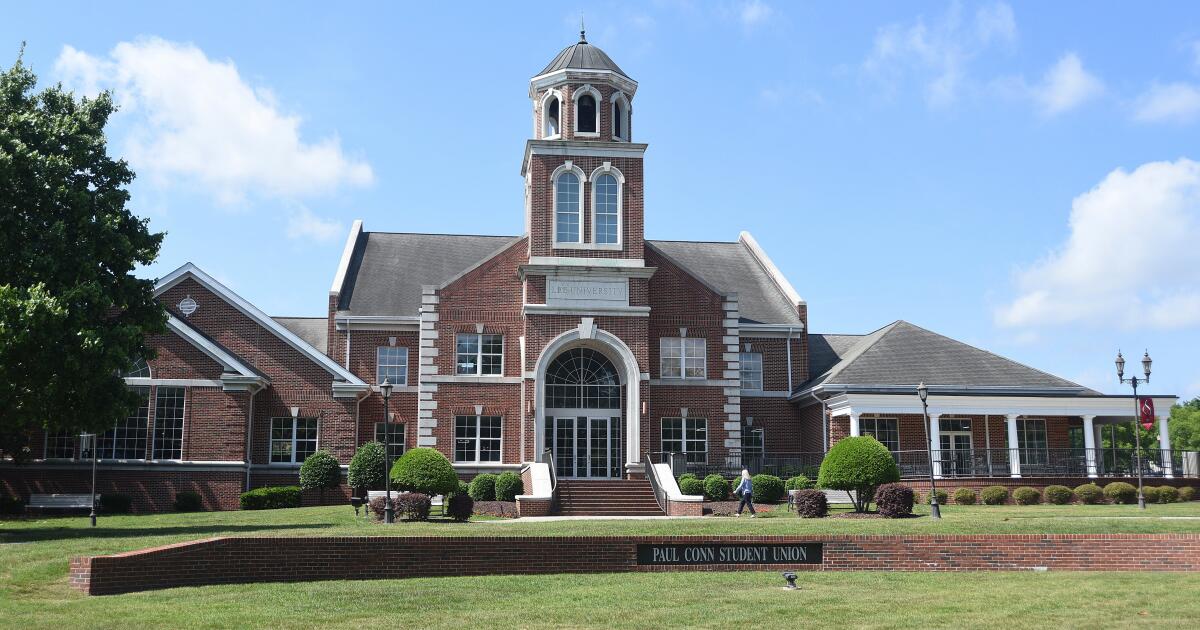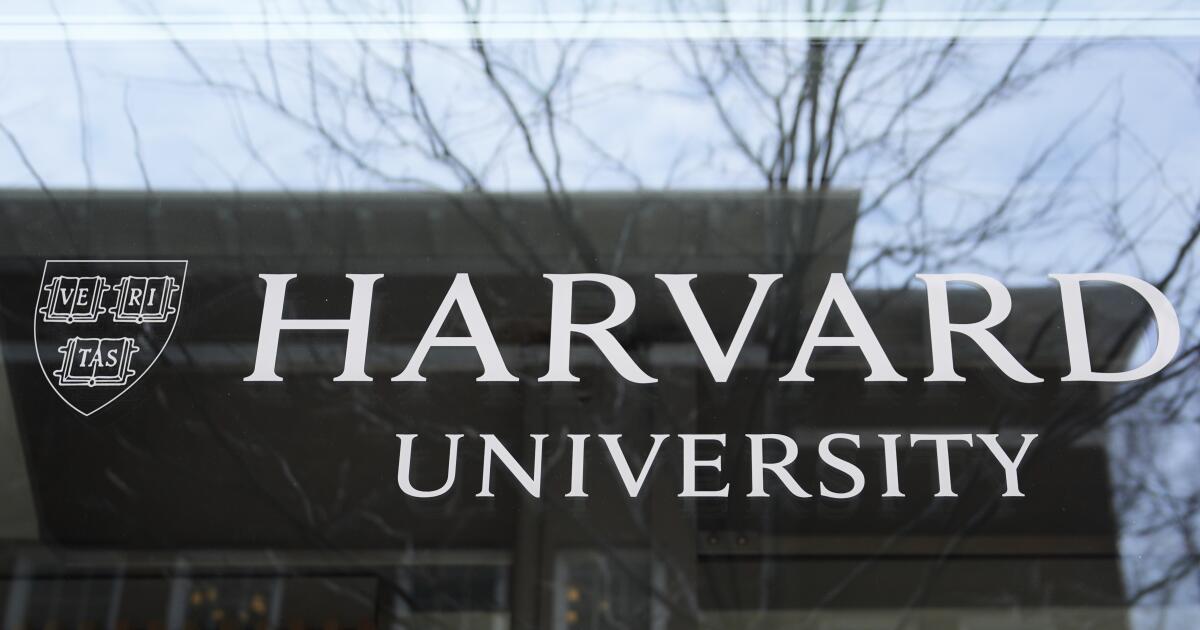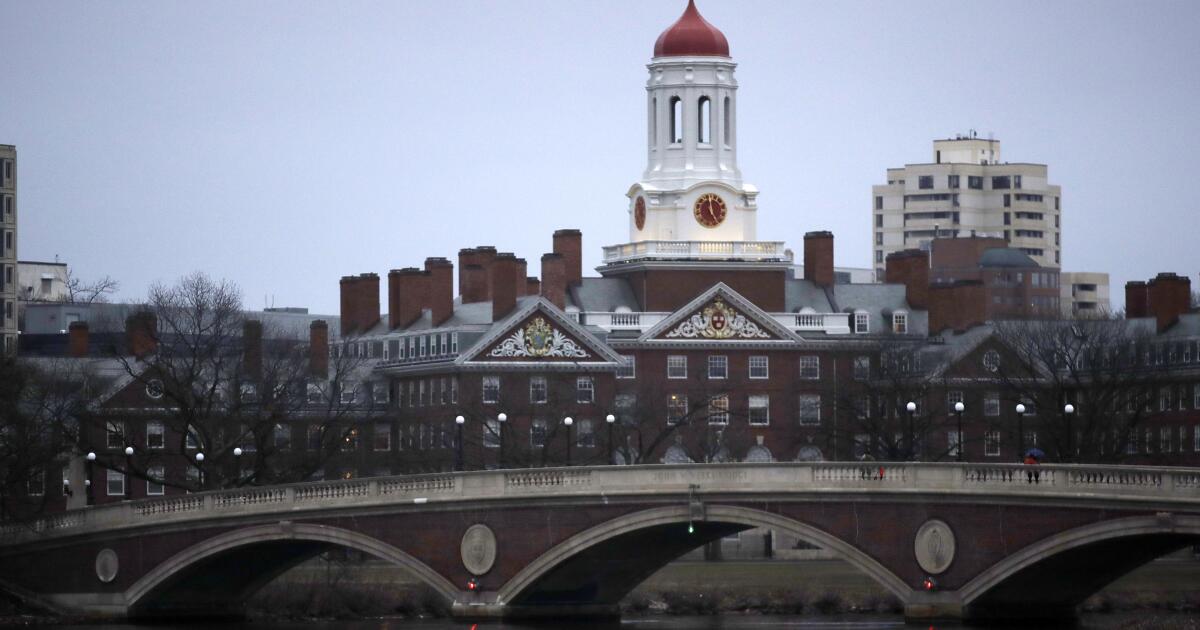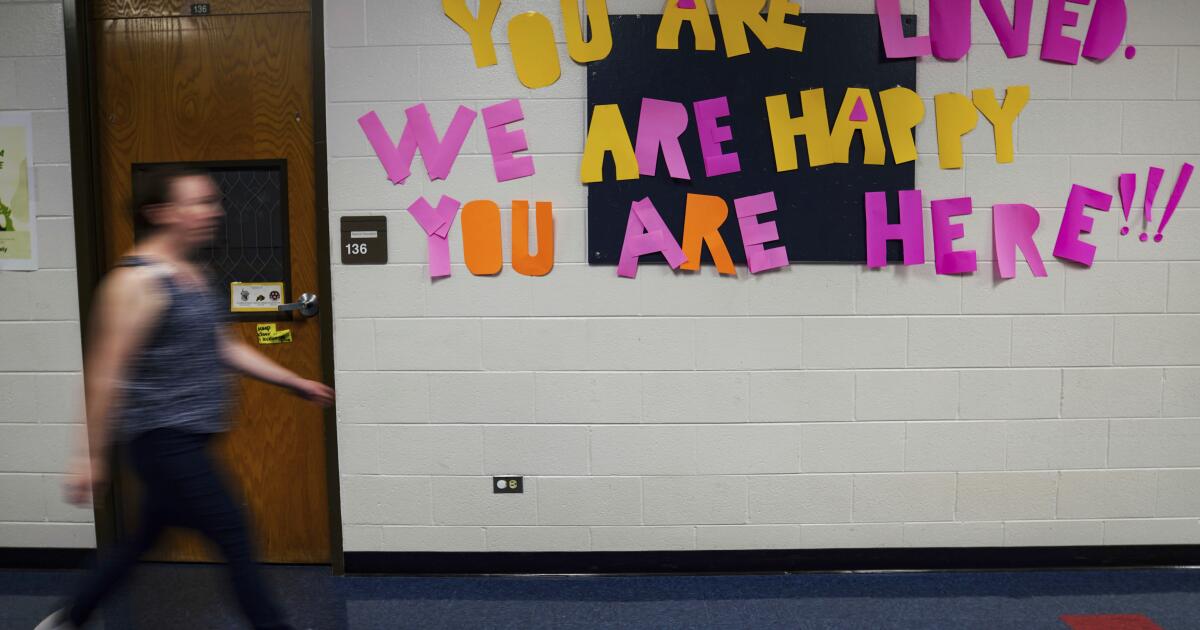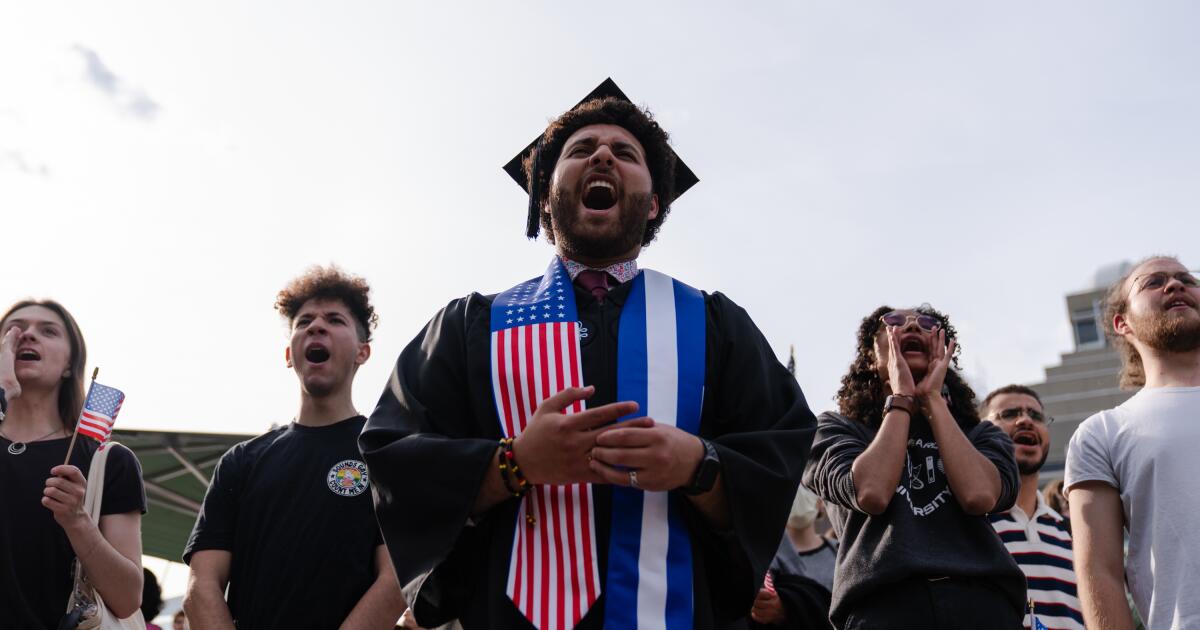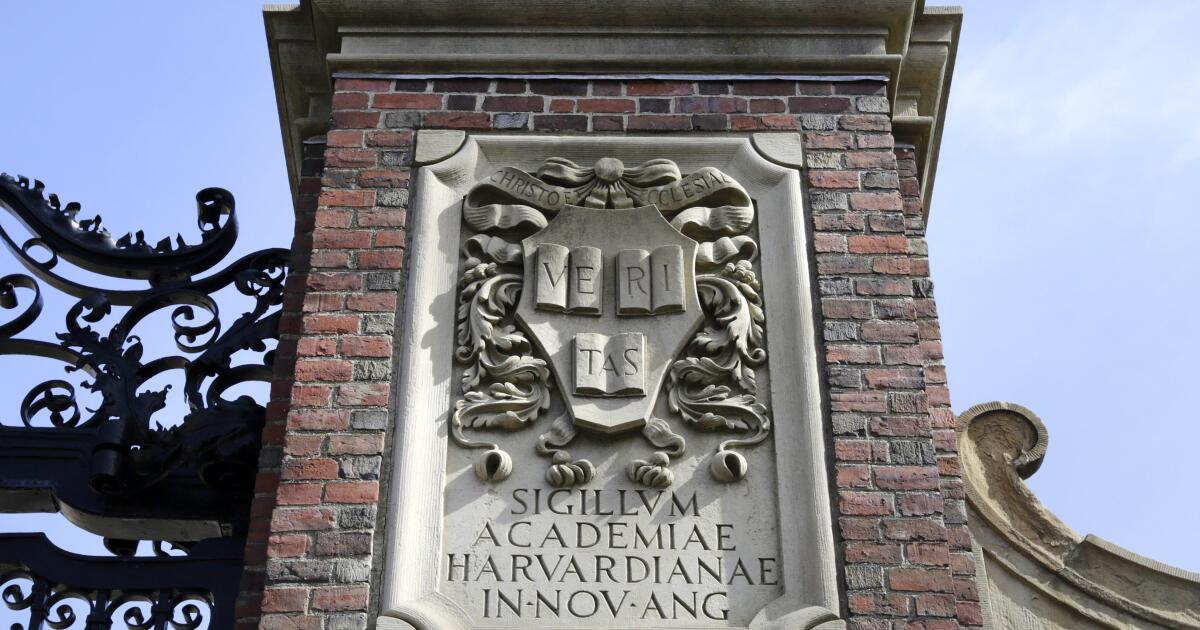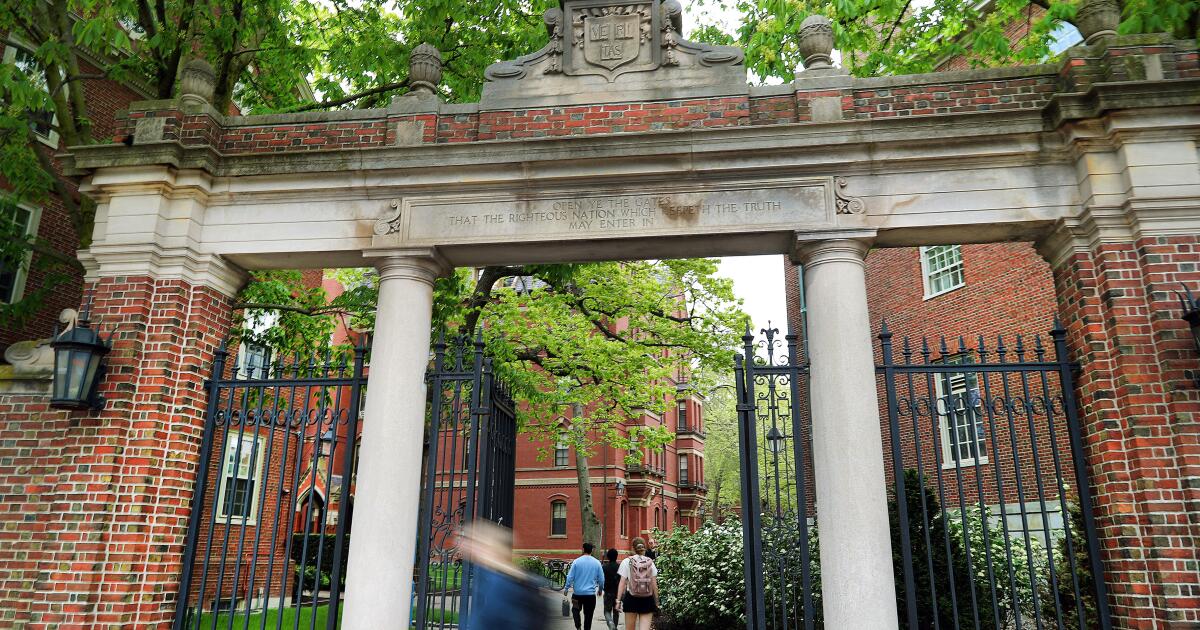Trump’s travel ban keeps international students from coming to the U.S.
With the Taliban barring women from college in her native Afghanistan, Bahara Saghari set her sights on pursuing higher education in the United States.
Saghari, 21, practiced English up to eight hours per day for several years, eventually winning an offer to study business administration at a private liberal arts college in Illinois. She was hoping to arrive this fall, but her plans were derailed again, this time by President Trump’s travel ban.
“You think that finally you are going to your dream, and then something came up and like, everything’s just gone,” Saghari said.
Thousands of students are among the people affected by the Trump administration’s travel ban and restrictions on citizens from 19 countries, including many who now feel stranded after investing considerable time and money to come to the U.S.
Some would-be international students are not showing up on American campuses this fall despite offers of admission because of logjams with visa applications, which the Trump administration slowed this summer while it rolled out additional vetting. Others have had second thoughts because of the administration’s wider immigration crackdown and the abrupt termination of some students’ legal status.
But none face bigger obstacles than the students hit with travel bans. Last year, the State Department issued more than 5,700 F-1 and J-1 visas — which are used by foreign students and researchers — to people in the 19 ban-affected countries between May and September. Citizens of Iran and Myanmar were issued more than half of the approved visas.
U.S. still the first choice for many
Pouya Karami, a 17-year-old student from Shiraz, Iran, focused his college search entirely on the U.S. No other country offers the same research opportunities in science, he said. He was planning to study polymer chemistry this fall at Pittsburg State University in Kansas, but he had to shelve those plans because of the travel ban.
Karami deferred admission until next year and is holding out hope. He is still preparing for his embassy interview and reaching out to U.S. politicians to reconsider the travel ban’s restrictions on students.
“I’m doing everything I can about it,” he said.
The full travel ban affects citizens from 12 countries spanning Africa, Asia, the Middle East and the Caribbean. It blocks most people from obtaining new visas, although some citizens from the banned countries are exempt, such as green card holders, dual citizens and some athletes. Seven other countries have tighter restrictions that also apply to student visas.
When Trump announced the travel ban in June, he cited high visa overstay rates and national security threats from unstable or adversarial foreign governments as reasons for putting countries on the list. He has called some of the countries’ screening processes “deficient” and said he plans to keep the ban in place until “identified inadequacies” are addressed.
‘This kind of breaks my heart’
In Myanmar, the family of one 18-year-old student made his education their top priority, saving paychecks for him to go abroad for college. They risked their stability so he could have the chance to live a better life, said the student, who asked to be identified by only his nickname, Gu Gu, because he is worried about being targeted by the Myanmar or U.S. government for expressing criticism.
When he shared a screenshot of his acceptance letter to the University of South Florida in a family group chat, it exploded with celebratory emojis, Gu Gu said. He had been waiting for visa appointments to be announced when, one night, his mother woke him to ask about news of a U.S. travel ban. In an instant, his plans to study at USF this fall were ruined.
Many students his age in Myanmar have been drafted into the military or joined resistance groups since the military ousted the elected civilian government in 2021. While a civil war rages, he had been looking forward to simple freedoms in the U.S. like walking to school by himself or playing sports again.
“I was all in for U.S., so this kind of breaks my heart,” said Gu Gu, who was unable to defer his acceptance.
Students forced to look elsewhere
Saghari, the Afghan student, postponed her July visa interview appointment in Pakistan to August after learning of the travel ban, but ultimately canceled it. Knox College denied her request to defer her admission.
She later applied to schools in Europe but encountered issues with the admissions process. A German university told Saghari she would need to take another English proficiency test because an earlier score had expired, but taking the test the first time was already a challenge in Afghanistan’s political climate.
She has been accepted to a Polish university on condition she pay her tuition up front. She said her application is under review as the school validates her high school degree.
Amir, a 28-year-old Iranian graduate who declined to provide his last name for fear of being targeted, wasn’t able to travel to the U.S. to take a position as a visiting scholar. Instead, he has continued to work as a researcher in Tehran, saying it was difficult to focus after missing out on a fully funded opportunity to conduct research at the University of Pennsylvania.
His professor at Penn postponed his research appointment until next year, but Amir said it feels like “a shot in the dark.”
He’s been looking at research opportunities in Europe, which would require more time spent on applications and potentially learning a new language. He still would prefer to be in U.S., he said, but he isn’t optimistic that the country’s foreign policy is going to change.
“You lose this idealistic view of the world. Like you think, if I work hard, if I’m talented, if I contribute, I have a place somewhere else, basically somewhere you want to be,” he said. “And then you learn that, no, maybe people don’t want you there. That’s kind of hard to deal with it.”
Seminera writes for the Associated Press. AP writer Todd Feathers contributed to this report.
